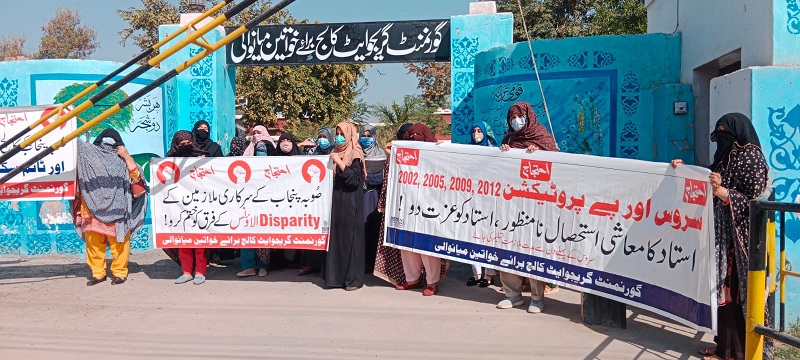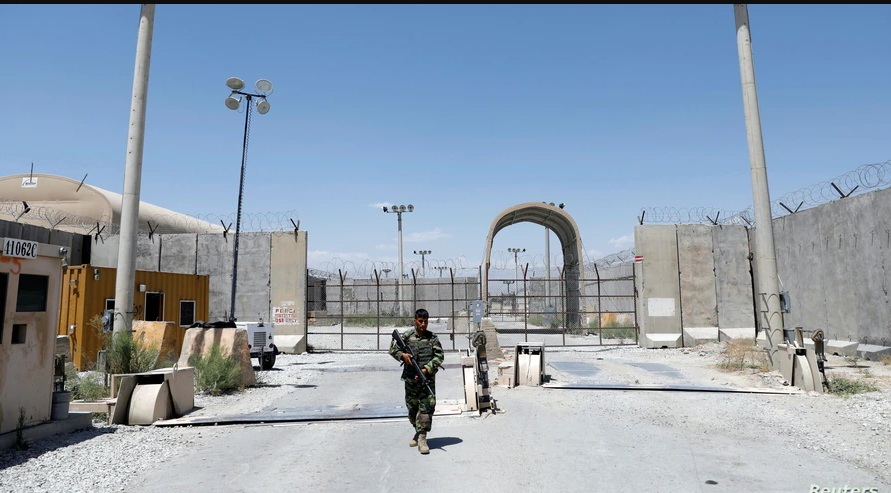Mahnoor Ayub
Student BS Medical Laboratory and Technology
University of Okara
 Pakistan’s national education system is composed of twelve years of education spread across four levels: primary (grades 1-5), middle school (grades 6-8), matriculation (grades 9 and 10), and intermediate (grades 11 and 12). Education plays a crucial role in the progress and development of a nation. The progress of any country depends on its literacy rate and the quality of education provided. Therefore, it is a key priority for nations. The Pakistani education system is one of the oldest in the world and boasts one of the most extensive and effective curricula in all of Asia. However, there are several flaws within the system that need to be addressed. Unfortunately, Pakistan lags behind in terms of its literacy rate, even compared to many poorer countries. The education system bears responsibility for this disparity. While education policies in Pakistan are well-intentioned, there are numerous problems within the system and its implementation. The current situation demands greater attention to be given to higher education instead of solely focusing on primary education. In small villages, primary schools are not progressing adequately, lacking proper facilities and infrastructure. It is widely known that primary education forms the foundation for higher education. Primary education plays a crucial role as the cornerstone and support system for all fields of life. Therefore, the government must prioritize and promote primary education according to its importance.
Pakistan’s national education system is composed of twelve years of education spread across four levels: primary (grades 1-5), middle school (grades 6-8), matriculation (grades 9 and 10), and intermediate (grades 11 and 12). Education plays a crucial role in the progress and development of a nation. The progress of any country depends on its literacy rate and the quality of education provided. Therefore, it is a key priority for nations. The Pakistani education system is one of the oldest in the world and boasts one of the most extensive and effective curricula in all of Asia. However, there are several flaws within the system that need to be addressed. Unfortunately, Pakistan lags behind in terms of its literacy rate, even compared to many poorer countries. The education system bears responsibility for this disparity. While education policies in Pakistan are well-intentioned, there are numerous problems within the system and its implementation. The current situation demands greater attention to be given to higher education instead of solely focusing on primary education. In small villages, primary schools are not progressing adequately, lacking proper facilities and infrastructure. It is widely known that primary education forms the foundation for higher education. Primary education plays a crucial role as the cornerstone and support system for all fields of life. Therefore, the government must prioritize and promote primary education according to its importance.
Pakistan has expressed its commitment to promoting education and literacy in the country through domestic education policies and involvement in international commitments. National education policies provide visions and strategies to increase the literacy rate, enhance capacity building, and improve facilities in schools and educational institutions. The Millennium Development Goals (MDGs) and Education for All (EFA) programs are global commitments made by Pakistan to promote literacy. However, a review of Pakistan’s education system suggests that little has changed in the country’s schools since 2010 when education was enshrined as a fundamental human right in the constitution through the 18th Amendment. Problems related to access, quality, infrastructure, and inequality of opportunity remain widespread. The MDGs, agreed upon by UN member states including Pakistan, serve as a framework for measuring progress and focus on achieving significant and measurable improvements in people’s lives. The EFA goals prioritize early childhood care and education, universal primary education, secondary education for youth, adult literacy with gender parity, and the quality of education.
There are several problems that hinder the development of the education system and the promotion of literacy in Pakistan. These problems include: Lack of Proper Planning: Pakistan’s financial management issues and constraints hinder its ability to achieve international commitments such as the MDGs and EFA goals. Social Constraints: Some of the problems that hinder education provision are deeply rooted in the social and cultural orientation of the people. Overcoming these challenges requires a change in attitude, as universal primary education becomes difficult to achieve without addressing these underlying social constraints. Factors such as poverty, cultural constraints, illiteracy of parents, and concerns about the safety and mobility of girls contribute to lower enrollment rates for girls. Societal emphasis on girls’ modesty, protection, and early marriages limits families’ willingness to send their daughters to school. The gender gap remains a significant factor, with rural girls’ enrollment 45% lower than that of urban girls, while the difference for boys is only 10%. Private schools, which are better in terms of quality, are only accessible in wealthier areas. Government schools, on the other hand, ensure equitable access but often fail to provide quality education. Pakistan’s education expenditure constitutes only 2.4% of GDP. At the national level, 89% of education expenditure is allocated to current expenses such as teachers’ salaries, leaving only 11% for development expenditure, which is insufficient to improve the quality of education. Insufficient focus has been placed on technical and vocational education in Pakistan. The number of technical and vocational training institutes is inadequate, and many lack proper infrastructure, teachers, and training tools. Skilled population plays a vital role in a state’s national development, as an unskilled population contributes to higher unemployment rates. Impact of the War on Terror: Pakistan’s engagement in the war against terrorism has negatively affected the promotion of literacy. Schools and students have been targeted by militants, leading to the destruction of educational institutions and loss of life in Balochistan, KPK, and FATA. While this may not be the primary factor, it remains significant.
Other contributing factors to low enrollment rates include poverty, the law and order situation, natural disasters, budgetary constraints, lack of access, poor quality, equity, and governance. Pakistan is not the only country facing challenges in promoting literacy and meeting EFA and MDGs commitments. Education receives the least attention in the entire South Asian region. According to a UNDP report from 2014, there has been improvement in other elements of human development, such as life expectancy, per capita income, and the human development index, but there has been no progress in the number of schooling years. Regional cooperation mechanisms can be developed to promote literacy in South Asia, where sharing success stories, making country-specific modifications, and implementing them can yield positive results. Reforms in the education system of Pakistan require more than just government intervention. Public-private participation and a mix of formal and non-formal education are necessary to uplift the majority of the country’s population from illiteracy. Attention should also be given to vocational and technical training to cultivate the youth as an asset to the country.
Technical education should be integrated into secondary education, with syllabi that include carpentry, manual skills, and other technical subjects. Providing financial assistance to students can encourage parents to enroll their children in school, thereby reducing the dropout rate. The local government system should contribute to the promotion of education and literacy by allocating funds based on community needs. Effective monitoring systems are necessary to address corruption within educational agencies. Legislation and structures should be developed to plan for the advancement of education in the country. Since education has become a provincial concern since the 18th amendment, each province must enact legislation and develop educational programs to establish an excellent education system in Pakistan. Addressing unemployment among educated individuals is crucial. Career counseling should be provided in schools to help students understand the job market and improve their skills accordingly. Parental counseling is essential to help children choose marketable career paths. The perception that education is solely for the purpose of obtaining employment needs to be addressed. There are various professions that require manpower beyond managerial and official positions. The mindset of sending children to university solely to become officers and managers should be challenged.
To strengthen the education system, determination, love, and sincerity towards the new generation are necessary. Grassroots level education must be prioritized, and the government bears the responsibility of solving administrative and management problems within the Pakistani education system. At the end, I thank to Respected Sir Dr. Muhammad Akram Zaheer for his valuable source of guidance. He generously shared his time and knowledge, providing me with valuable feedback and constructive criticism that has significantly improved the quality of my work. His patience, encouragement, and willingness to engage in meaningful discussions have been truly inspiring.
Contact Author: mahnoormayub42@gmail.com









